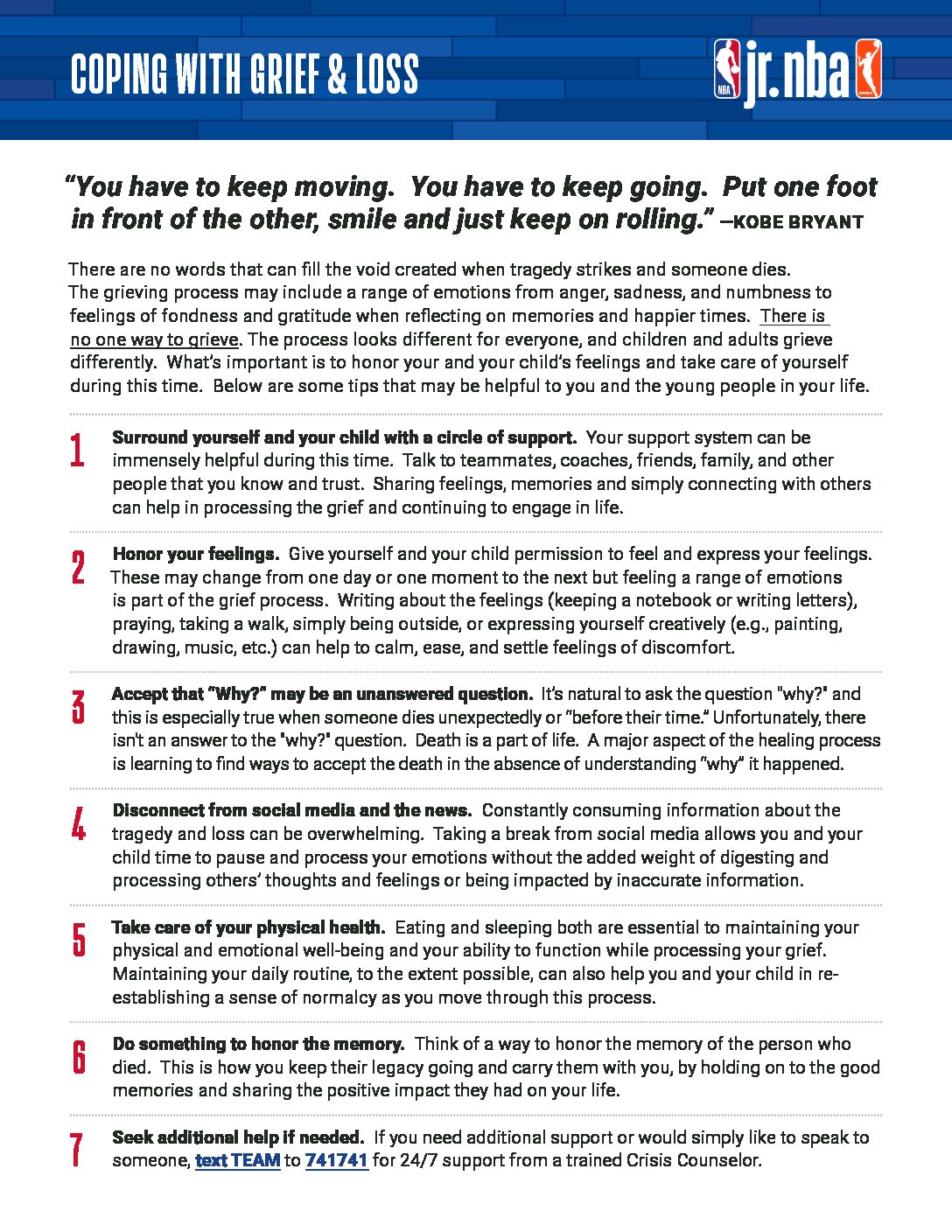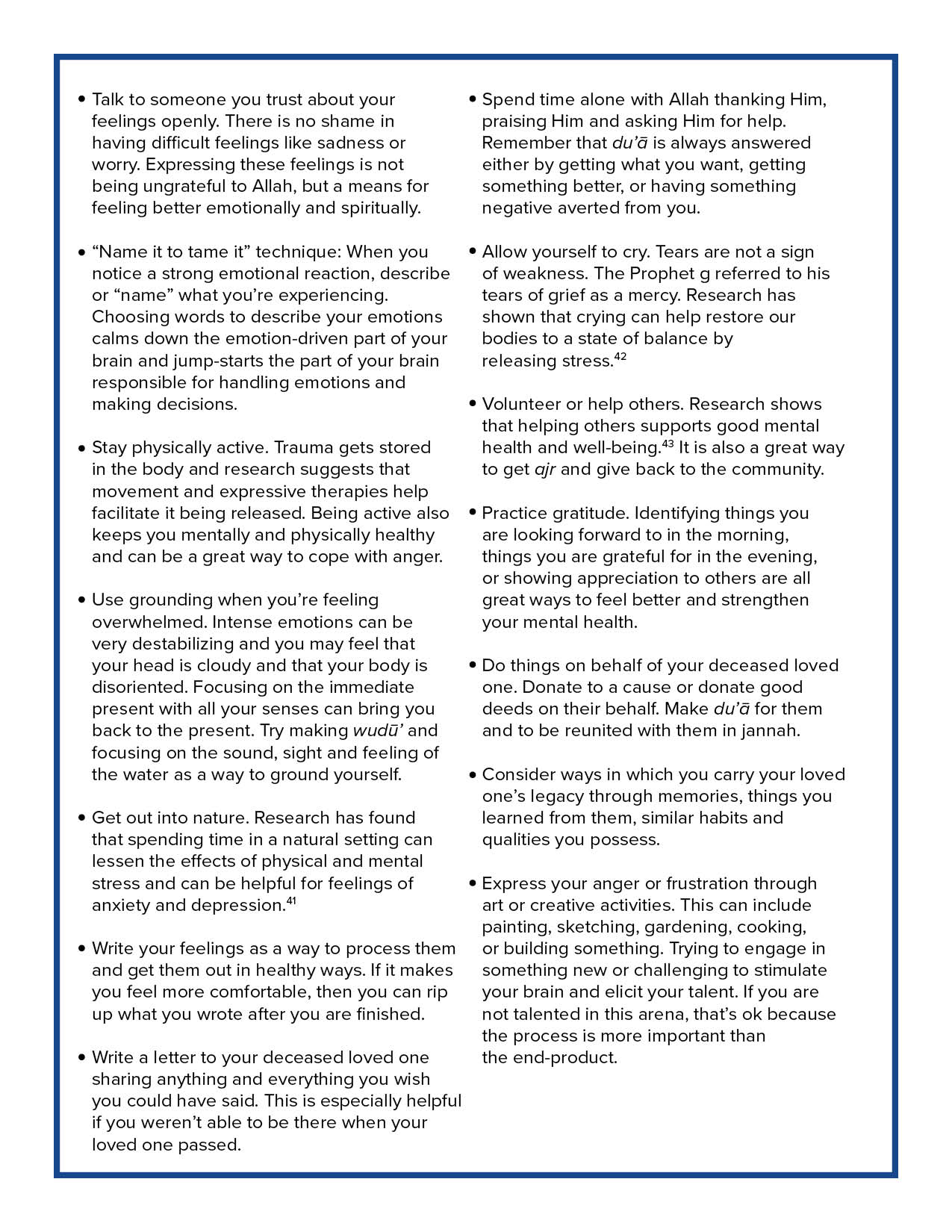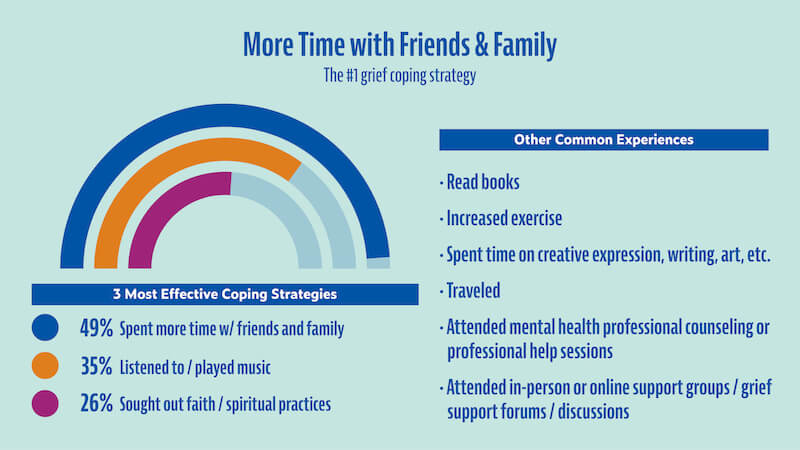Interpersonal relationships need maximum determination to nurture and sustain, and they are regarded as a connection between people. For relationships to last, there has to be constant communication between the parties involved. However, some problems usually arise inside interpersonal communication, and in my case, that problem is grief. Being present for my family and loved ones when grieving for the loss of my loved ones is a big challenge. Grief is a response that usually occurs when there is a loss of someone loved, and it causes emotional suffering. The pain that results from the loss usually makes one feel devastated with unanticipated emotions like anger and deep sadness (Smith et al., 2017). The pain can cause disruptions of one’s health, affect the ability to eat, sleep and think straightly and these effects hurt relating with others. One of the significant challenges in life is dealing with the loss of somebody you love. The loss may be either in the form of death or divorce or breakup, loss of friendships, among others.
One may employ healthy ways to manage pain, accept the loss, and find a way of moving on with life. The process of grieving is dependent on one’s personality, life experiences, the extent of the weight of the loss to the person. The healing process is gradual, and it takes time; there is no need for it to be rushed. The duration grieving takes varies from person to person, so patience is required for the process to unfold.
There are proven techniques to be used to solve the problem. Some myths and facts surround grief, and they need to be correctly understood for healing to occur. The number one myth is that ignoring the pain will make it fade faster, yet in reality, it worsens it. Facing grief and dealing with it is essential for actual healing to occur. There are claims that people need to be strong during loss, but the fact is that feeling sad is expected in the face of loss wailing does not mean one is weak. Moving on with life does not mean overlooking the loss but accepting it.
The following are the recommendations on how to deal with the problem of grieve. Grieving is a process, and it includes the necessary steps to be taken to cope with it. The first thing to be done is to admit the pain and then accept the unexpected emotions activated by grief. There has to be an understanding that the process of grieving is exclusive to everyone; this saves one the frustration of trying to copy that of others, and seeking support from those that care physically and emotionally is very important. The last significant step is identifying the distinction between grief and depression. There are five stages associated with grief: denial, anger, bargaining, depression, and acceptance (Zara, 2019). Not everyone that grieves undergoes all the phases, and it is acceptable since grieving depends on the individual the same way life does. There are emotional and physical signs of grief that people experience while grieving. Emotional ones include shock and disbelief, fear, anger, sadness, and guilt. The physical problems associated with grief are loss of sleep, weight gain or loss, exhaustion, vomiting, aches, and lowered immunity.
Seeking support is one of the recommended solutions for dealing with grief for loss. There are regular instances of distress causing one to distance themselves from others but having direct support from others is vital for recovering from loss. Expressing feelings when grieving is critical, and it does not matter whether one feels comfortable talking about them or not. Sharing of loss of a loved one makes the weight of grief light to bear (Kennedy, 2019). Sharing does not mean talking about it every time you relate with people; relief can arise just by being around them, so the important thing here is avoiding isolation at all costs.
You should go to friends and family since grieving is the time that needs leaning on those that care, and the pride of being strong and independent is not required. Admit that it feels awkward when comforting someone who grieves because of differences in experiences, and so they may say or make mistakes, but that’s not an excuse for isolation (Mohamed et al., 2018). Draw relief from your religious beliefs, be part of a support group and consult an experienced therapist to find help, especially when the emotions are intense. Social media can also be an essential tool for finding support when dealing with grief, such as posting Facebook groups (Moyer & Enck, 2020). It is also necessary to take care of oneself by meeting physical and emotional needs. Face your feelings, creatively express them, make an effort to continue with hobbies and interests, don’t communicate and concentrate on how you feel, and take care of your physical health.
When grief stays for so long after losing someone, such that the problematic emotions become more intense, it may be a sign of depression or complex grief. Complex grief means remaining in severe pain and sorrow, and there is trouble accepting the loss. It is only the correct guidance that can help cure complicated grief. Antidepressants cannot help in handling grief but can be used when one experiences depression or complicated grief.



References
Coping with loss [Online Image]. (2020). Eterneva. Web.
Kennedy, C., Deane, F. P., & Chan, A. Y. (2019). In limbo: A systematic review of psychological responses and coping among people with a missing loved one. Journal of clinical psychology, 75(9), 1544-1571. Web.
Mohamed Hussin, N. A., Guàrdia-Olmos, J., & Liisa Aho, A. (2018). The use of religion in coping with grief among bereaved Malay Muslim parents. Mental Health, Religion & Culture, 21(4), 395-407. Web.
Moyer, L. M., & Enck, S. (2020). Is my grief too public for you? The digitalization of grief on Facebook™. Death studies, 44(2), 89-97. Web.
Najwa, A., & Sarah, S. (2020). Coping with grief: a spiritual and psychological guide. Web.
Olivier, C. (2020). Coping with grief & loss [Online image]. Gold Crown Foundation. Web.
Smith, M., Robinson, L., & Segal, J. (2017). Coping with Grief and Loss: Understanding the Grieving Process and Learning to Heal. Web.
Zara, A. (2019). Loss, grief and depression: potential risk factors in grief-related depression/Kayip, yas ve depresyon: Yasa bagli depresyonda potansiyel risk etkenleri. Anadolu Psikiyatri Dergisi, 20(2), 159-166. Web.
